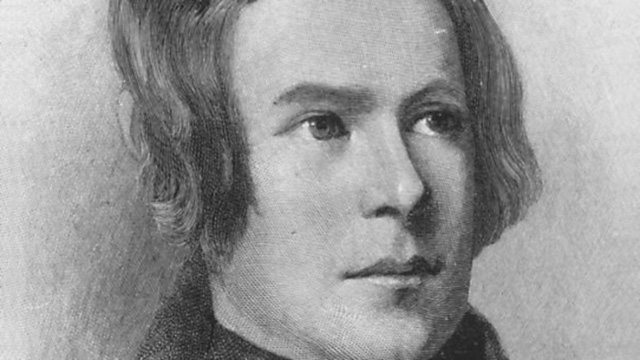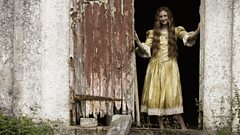Robert Schumann
Donald Macleod charts the relationship between Schumann and Clara Wieck.
Donald Macleod charts the unique relationship between Robert Schumann and Clara Wieck.
Donald Macleod focuses on the beginning of Robert Schumann and Clara Wieck's relationship, beginning with a young Robert in Leipzig, following his mother's wishes for him to study law. A musical house party in 1828, at which he meets Friedrich Wieck and his little virtuoso daughter Clara, sees Robert instead pursuing his dream 'to devote myself entirely to music'.
Donald Macleod explores Schumann's tortuous battle for Clara's hand in marriage. Her father Friedrich Wieck was determined to keep his daughter in his clutches at all costs, and legal battles, lengthy separations and slanderous attacks ensued before, undeterred, Robert and Clara were finally married in 1840 with the blessing of the court.
Musically, this was a fruitful period for Schumann. Donald is joined by pianist Lucy Parham to discuss his epic Fantasy for piano - described by the composer as 'the most passionate thing I have ever written'.
After Robert and Clara Schumann settled into married life in Leipzig, they immediately started a marriage diary. Donald and pianist Lucy Parham flick through some of the pages, which reveal that their marriage was not the 'poetry and flowers' that Robert had predicted, as both artists strived to maintain their musical careers.
Amidst growing concerns for Robert's mental health, the Schumanns made the move in 1845 to Dresden, where he took to the podium as conductor of an amateur choir and, with Clara's assistance, led several performances of his own works. But his strange leadership did not always go down well with the choristers.
If musical life seemed dull, all that was about to change with the Dresden uprisings in 1849, after which Robert fled the city, leaving his pregnant wife Clara to brave the battleground and rescue their children to safety.
In the company of pianist Lucy Parham, Donald discovers how Clara coped with her husband's decline, and how Brahms became a vital friend during Schumann's years at the asylum in Endenich. Including music reflecting Schumann's mental illness and a vintage recording of his violin concerto, which Clara and Brahms tried to ban from being published.
Duration:
Credits
| Role | Contributor |
|---|---|
| Composer | Robert Schumann |
This clip is from
Featured in...
![]()
Discovering Schumann—Composer of the Week
Listen to programmes examining the life and works of Robert Schumann.
More clips from Composer of the Week
-
![]()
Wrth fynd efo Deio i Dywyn (trad.) arr. Jayne Davies
Duration: 01:46
-
![]()
Lisa l芒n (traditional) , arr. Jayne Davies
Duration: 03:12
-
![]()
Morfydd Owen's Llwyn Owen, arr. Edward-Rhys Harry
Duration: 05:17
-
![]()
Blacklisted!—Sofia Gubaidulina (b 1931), An Incorrect Path
Duration: 01:21







